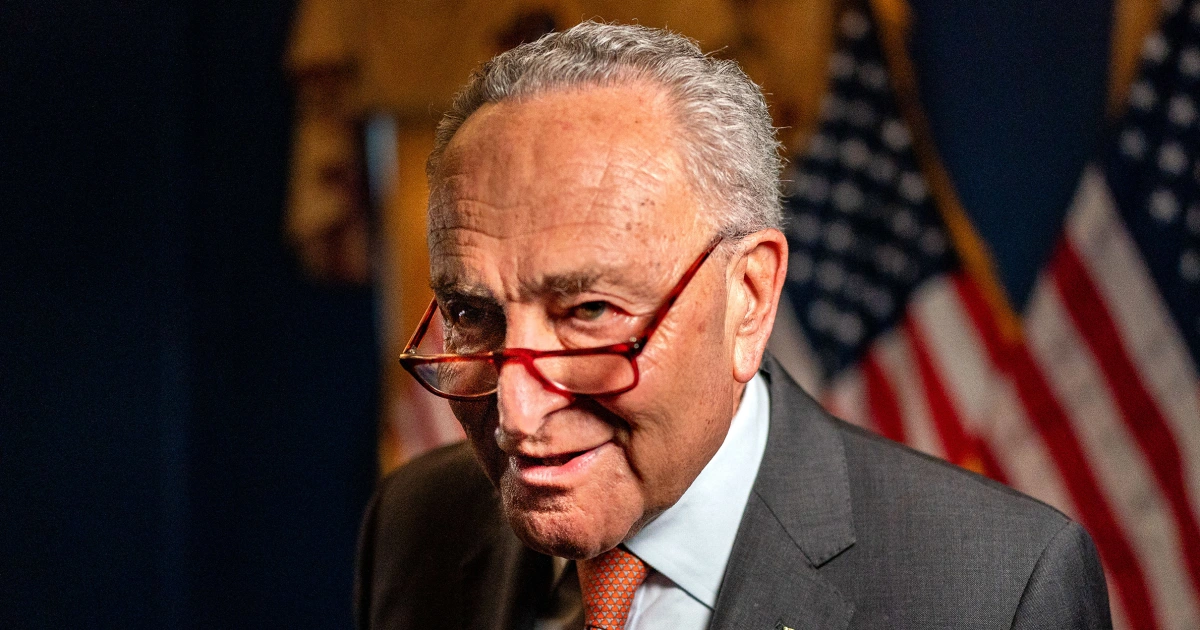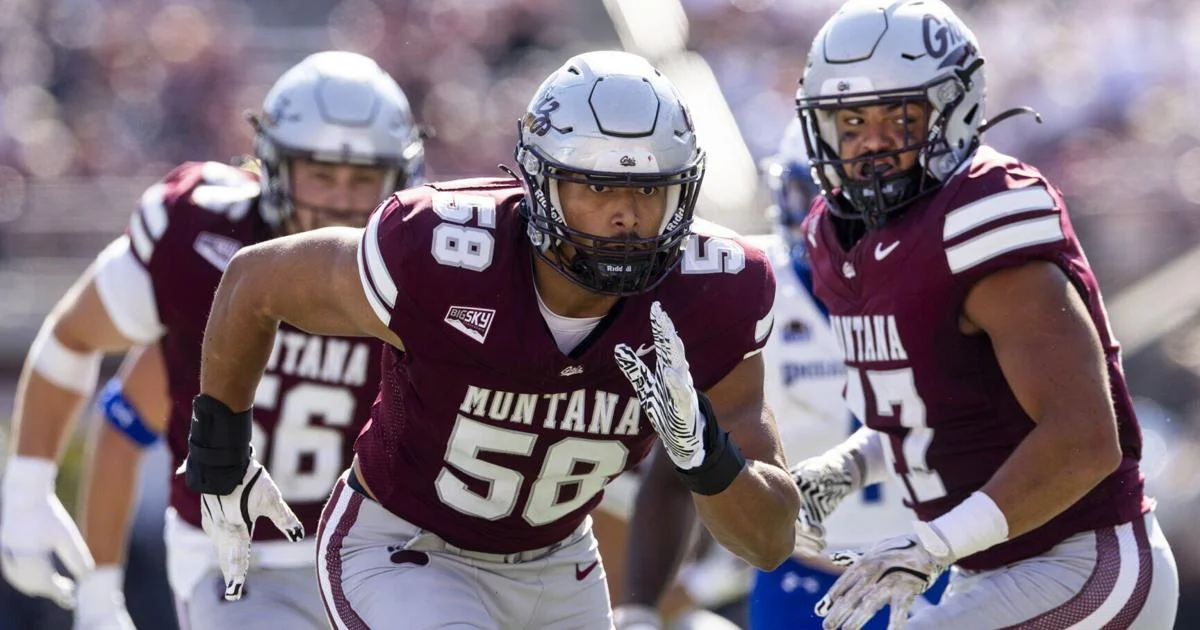
When Michigan state Sen. Mallory McMorrow decided in February that she wanted to run for an open U.S. Senate seat, she conveyed her intentions to the Democratic Senatorial Campaign Committee. But the committee asked her to hold off, according to three sources familiar with the conversations.
In that call and subsequent ones, some of which took place at the staff level, DSCC officials didn’t explicitly ask her not to run, but “they were slow-walking,” said one source who discussed the private conversations on condition of anonymity. “It was, ‘Can you wait a little longer, can you wait?’”
In early April, McMorrow defied their wishes and launched her campaign, inveighing against “the same old crap in Washington” and highlighting polls that showed the Democratic Party’s approval rating at an all-time low.
“We need new leaders,” she said in her launch video. “Because the same people in D.C. who got us into this mess are not going to be the ones to get us out of it.”
Whether she intended it or not, the 39-year-old McMorrow started a trend of Democratic outsiders end-running party leaders to launch their campaigns, sometimes in explicit opposition to them. The movement is fueled by a crisis of confidence among Democratic voters in their own party, which is giving encouragement to the types of nontraditional candidates who have been walloped by leadership-aligned rivals in the past.
Altogether, ahead of the 2026 midterm elections, the moves have created a number of crowded and competitive-looking Democratic Senate primaries — contests that have often seen party leaders leap in to anoint favorites in recent years. Democratic angst following the loss to President Donald Trump last year has contributed to the trend in at least five races that could determine the majority, from core battlegrounds like Michigan and Maine to long-shot targets like Iowa and Texas.
The DSCC has not endorsed in any competitive Senate primaries so far, though Sen. Kirsten Gillibrand, D-N.Y., who chairs the committee, has not ruled out doing so.
Sen. Adam Schiff, D-Calif., who serves as a DSCC vice chair, said the committee would only intervene in primaries if it was necessary to stop a politically toxic candidate.
“I think the DSCC general inclination is to let the local parties and voters make those decisions, unless there’s a candidate who’s clearly not viable,” he said. “But I think we’re going to have a set of strong challengers all over the country.”
The DSCC did not address questions about the conversations with McMorrow earlier this year. In a statement, DSCC spokesperson Maeve Coyle said: “The DSCC is focused on winning Senate seats and flipping the majority in 2026, and our strategy is guided by the best way to do that.”
The McMorrow campaign declined to comment.
A slate of big primaries
Even as the DSCC remains officially neutral, it is not uncommon for leaders to work behind the scenes to steer donors and party support to preferred candidates in an effort to head off contested primaries in key races. That strategy is facing new headwinds.
McMorrow, for example, has said she won’t vote to re-elect Sen. Chuck Schumer, D-N.Y., as the Democratic leader. Her main Democratic rivals in Michigan, four-term Rep. Haley Stevens and progressive physician Abdul El-Sayed, have both demurred on whether they would back Schumer as leader.
“I understand that I’m sometimes not the ‘capital D’ Democratic Party’s favorite,” El-Sayed said in a recent interview when asked if he has faced any pressure to drop out of the race. “But I’m listening to the people and they’re telling me, ‘Abdul, it shouldn’t be this hard and you’re the only one showing up and telling us how you want to fix it.’”
In Maine, where Democratic leaders are holding out hope of recruiting Gov. Janet Mills, oyster farmer and military veteran Graham Platner is running as a populist disruptor who will take on a system that is “rigged” for the wealthy.
Platner, who has made waves on social media, garnering millions of views for his posts and videos, is also vowing not to support Schumer if elected. (Platner and El-Sayed have both been endorsed by Sen. Bernie Sanders, I-Vt.) Former congressional aide Jordan Wood, brewery owner Dan Kleban and former Air Force civilian officer Daira Smith Rodriguez are also running in the Democratic primary in Maine.
Mills has said she is seriously considering running, and she could face a contested primary if she jumps in. Kleban has not said if he would stay in the race, but both Platner and Wood have vowed to take on Mills.
Contested Democratic primaries are also developing in Iowa and Texas, two Republican-leaning states that could have competitive Senate races next fall.
In Iowa, the Democratic field also includes state Sen. Zach Wahls, military veteran Nathan Sage, Des Moines School Board Chairwoman Jackie Norris and state Rep. Josh Turek, a Paralympian. The field did narrow over the summer in favor of Turek, when state Rep. J.D. Scholten ended his Senate campaign and backed his fellow state legislator.
Scholten told NBC News that he did not face any pressure to end his Senate campaign. That was a departure from 2020, when he considered a primary bid against eventual Democratic Senate nominee Theresa Greenfield, who ended up earning an endorsement from the DSCC.
“At that time I met with [Schumer] and he told me he didn’t want a primary and all that stuff. This time I didn’t have anybody ask me to step out of the race. It was 100% my decision,” Scholten said, noting that discussions with DSCC staff gave him the impression that the committee would stay out of the primary.
In Texas, state Rep. James Talarico is taking on former three-term Rep. Colin Allred, who lost a Senate race to GOP Sen. Ted Cruz last year.
Democratic leaders have also had some big recruiting wins and seen the party rally around those choices in at least two key states. In North Carolina, they have coalesced around former Gov. Roy Cooper in a must-win race. And Democrats, including Schumer, successfully recruited former Sen. Sherrod Brown to run again in Ohio, where he is one of the few Democrats to win a statewide race in the last decade.
Democratic angst
Another Democratic strategist advising Senate candidates said the “old” playbook of party leaders effectively controlling primaries doesn’t work in the context of the modern “attention economy,” while predicting that the 2026 primaries will boil down to three questions: “Are you cool? Can you fight? Can you inspire people?”
A national poll taken this month by The Associated Press found that the Democratic Party had a 34% favorable rating, and 53% unfavorable. The poll found that just 69% of Democrats saw their party favorably, while 27% registered an unfavorable view. Just 19% of independents said they see the party favorably. (The GOP had a 78% favorable rating among Republicans, with 17% holding unfavorable views of their own party.)
The Democratic strategist, who wasn’t authorized by clients to speak publicly, added that party elites lost credibility with their base after the events of 2024.
“Democrats saw their party leaders telling them in 2024: ‘Biden’s gonna win; Trump’s a fascist; Don’t worry, we got this,’” the strategist said.
Democratic Rep. Alexandria Ocasio-Cortez, who was first elected in 2018 after a shock primary win in New York City against a member of Democratic leadership, said she sees echoes of that environment in primaries across the country, including Zohran Mamdani’s mayoral primary win in her city.
“There are definitely elements to this moment that remind me of the conditions that existed in the country — and the general sentiment and mood — when I was elected,” Ocasio-Cortez told NBC News. “These are conditions that an outside candidacy could have the most momentum.”
“Where the electorate is is that they want to support Democrats who are bold, who are standing up, who are fighting against the administration,” she added. “I don’t think the general electorate is looking for permission from elected leaders to vote for someone or not.”
Some Democratic operatives noted that the numerous Senate primaries may not be an indictment of leadership, but rather a product of the broader political environment.
“You can have the absolutely most respected leadership and the national leadership could be held in super high regard, and it is still hard to stop people from running for office under those kinds of political circumstances,” one Democratic strategist said, noting the wave of candidates who leapt into congressional races in response to Trump’s previous election win.
And Democrats broadly do not view these primaries as problematic, which could explain why leadership-aligned groups have not started to boost certain candidates.
They noted that, on the Republican side, the nonprofit arm of the main super PAC aligned with Senate GOP leaders has already spent $9.4 million on ads to block Texas Attorney General Ken Paxton from defeating GOP Sen. John Cornyn, according to the ad-tracking firm AdImpact.
So far, Democrats are optimistic that they can make a real run for the Senate majority, despite their competitive primaries. Indeed, some in the party say leaders should welcome primaries at a time when the Democrats are in the “wilderness” and voters are hungry for a change.
“People are mad we lost the last election, people are frustrated with the party’s response,” said veteran Democratic strategist Mike Nellis. “Fairly or unfairly, the establishment is the least popular it’s been in my career — two decades.”
“To me, primaries are good … We should stop being afraid of a little bit of Democratic infighting,” Nellis said. “Democrats are going to have to figure out who we are and what we stand for.”



